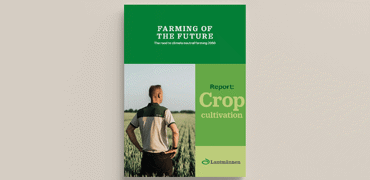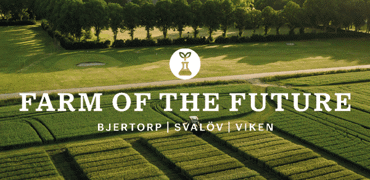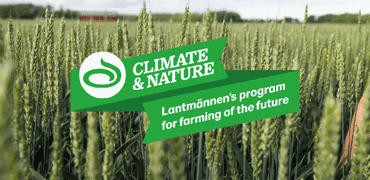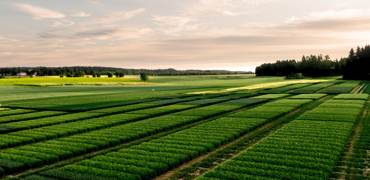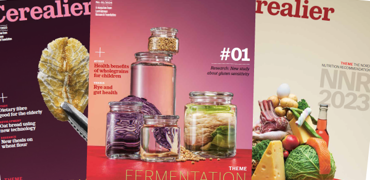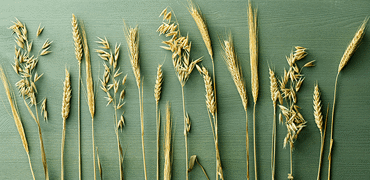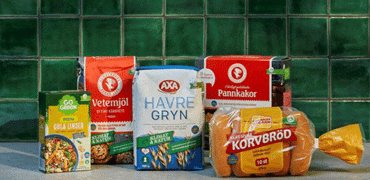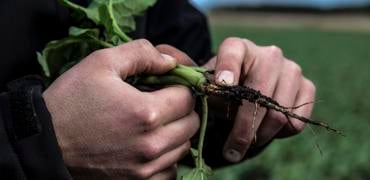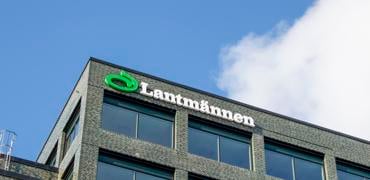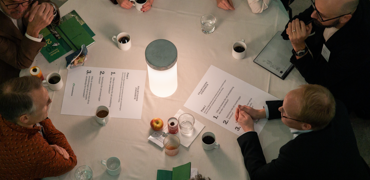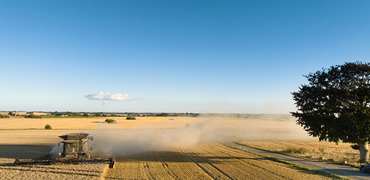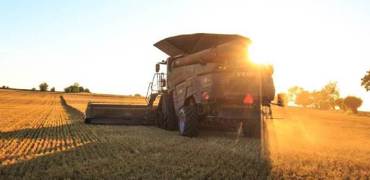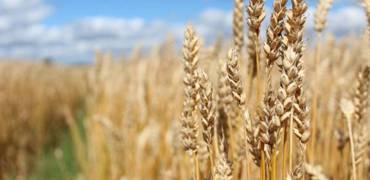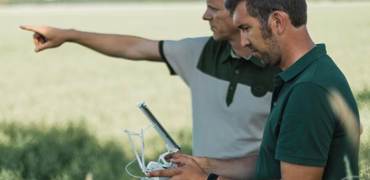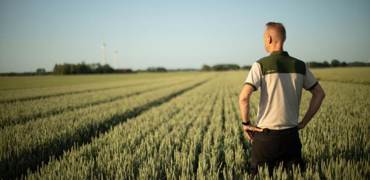2023 – the year when the fossil free value chain becomes a reality
Right now, decisive steps are being taken towards the fossil free production of food. In 2023, fertiliser will begin to be produced with fossil free methods and in autumn we look forward to the first harvest of grain grown with a fossil free value chain. Lantmännen’s Head of Sustainability, Claes Johansson, provides us with a report on the very latest exciting developments.
The journey towards fossil free grain production in Sweden has been going on for a long time and this year a comprehensive solution will be in place. Interest from many actors is great. This was not least noticed a couple of months ago when Lantmännen arranged a meeting about the transformation to fossil free food production in a challenging time. In a live-streamed seminar and subsequent round table discussion, company leaders and societal actors discussed how the long-term focus on the climate work of the business community can be maintained in a time of crisis and turbulence. The day was characterised by the interest and commitment of the participants; there is a strong drive for innovation and collaboration for fossil free food production.
Today, we see that Lantmännen is taking control of the whole value chain and this is what is required. Being able to buy fossil free grain in 2023 is unique in the world!
Lantmännen is now taking a big step towards the transformation of Swedish food production as we present the world’s first fossil free value chain for grain. In the seminar, we presented our collaboration with Yara to launch fossil free fertiliser next year. A terrific opportunity has opened up, where we can reduce the climate impact from food substantially and create real climate benefit, here and now.
During the seminar, we heard several encouraging and inspiring voices. I especially take Svante Axelsson’s enthusiasm with me, he said among other things: “The business community can create the necessary courage. Clear leadership is needed, and the business community is one of the most important opinion-shapers that can take on the role and explain how it is possible to transform. Today, we see that Lantmännen is taking control of the whole value chain and this is what is required. Being able to buy fossil free grain in 2023 is unique in the world!”
I agree that there is a strong force of change where companies can go ahead and take the lead. We cannot wait for the consumer, instead we must actively develop sustainable solutions and offer a better alternative. One such offering is Lantmännen’s Climate & Nature cultivation programme where grain can now be produced fossil free and we can offer fossil free produced products on the shelf.Producers and retailers have a responsibility to prioritise the right choice on scientific grounds. Now there is the opportunity to act, the tools are in place, the pace of the transition is determined by how the market and companies choose to act and what conditions politics creates. We discussed this and much more with industry colleagues and important actors in the transformation.
Some of the conclusions from our round table discussions that I would like to highlight in particular are:
- The entire value chain must act together. By working for the transformation of the entire value chain and also setting goals within Scope 3, a real difference can be achieved. The grocery trade has an important role in offering increasingly sustainable products, other actors need to support and drive them.
- We must share costs in the value chain. Risk, investments and benefits must be distributed across the value chain taking into account where the value is created. The farmer must receive a larger share of the ‘food krona’ so that agriculture becomes more competitive. New business models may be needed to manage the additional costs at the farm level. At the same time, we see that investments in sustainability can be more profitable than the alternative in the long term.
- Increased pace and scale are now required. We must scale up the transformation quickly. We are in an important phase now where good examples and opportunities exist. The transformation must take place across the board. There is also great potential in terms of business as Sweden can export the world’s most sustainable agriculture.
- Better conditions from politics. A long-term political platform is needed that creates the conditions for large and long-term investments. Both at national level and in the EU, clear rules of the game are needed. This concerns regulations, incentives and investments. Environmental policy is an important part of industrial policy.
I would like to thank participants for their important and interesting contributions. I left the meeting more inspired and hopeful about the changes we can bring about together. I see the dialogue around the round table as the beginning of deepened collaborations and exchanges that we will continue. Hopefully, we have also sown a few seeds for more collaborations between other actors who can act for a faster transformation. Farming of the Future is Lantmännen’s vision for profitable and sustainable agriculture; it is a platform we firmly stand on and which I believe can form a springboard for real change.






